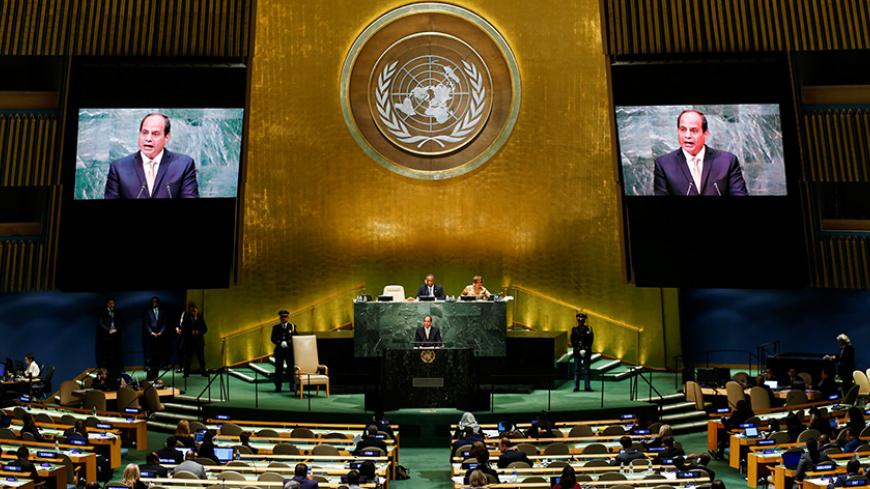In a speech to the UN General Assembly on Sept. 20, Egyptian President Abdel Fattah al-Sisi suggested that Israelis and Palestinians learn from the “wonderful example” of the peace between Israel and Egypt. Indeed, the peace treaty signed in 1979 between Israel and the world’s most important Arab state was joyous news for both sides. This wonderful example, however, also constitutes a grim chapter in the tragic annals of some quarter of a million Palestinians who were dispossessed of their homes in 1967 and whose lands are now being farmed by strangers.
Egypt has been a bitter disappointment to hundreds of thousands of Arab people, specifically, the Palestinians uprooted from their homes in the West Bank, the Gaza Strip and East Jerusalem in the June 1967 Arab-Israeli war. Some 250,000 people, a quarter of the territories’ residents at the time, many of them refugees from the 1948 war, were forced into refugee camps in neighboring Arab states (in addition to some 100,000 Syrian refugees from the Golan Heights). Egypt sold them out for a song.



